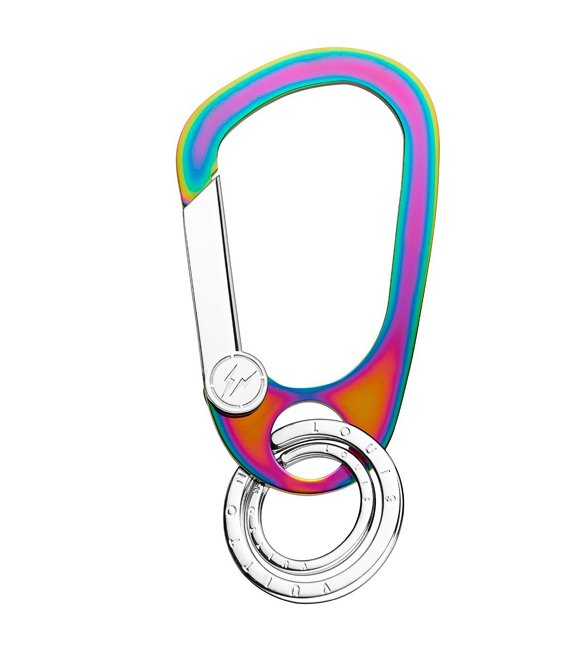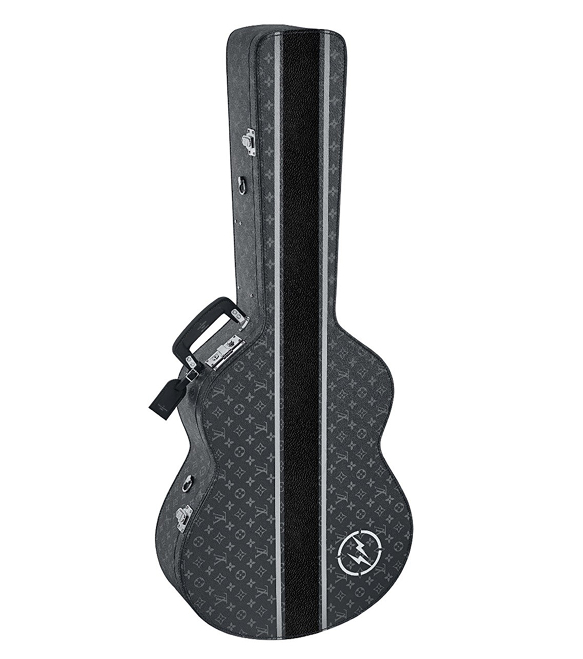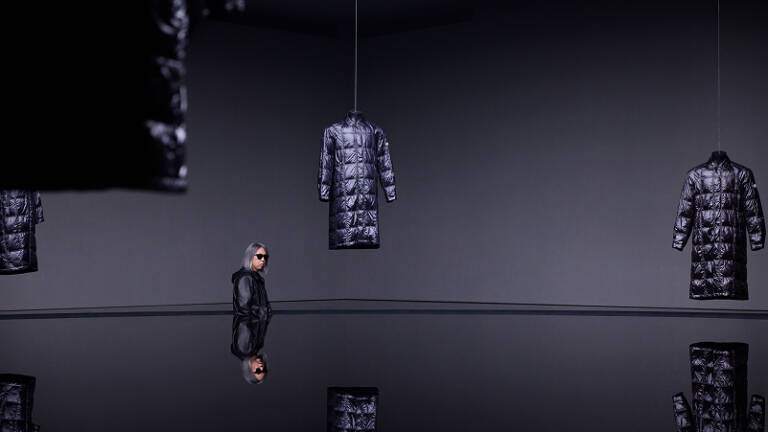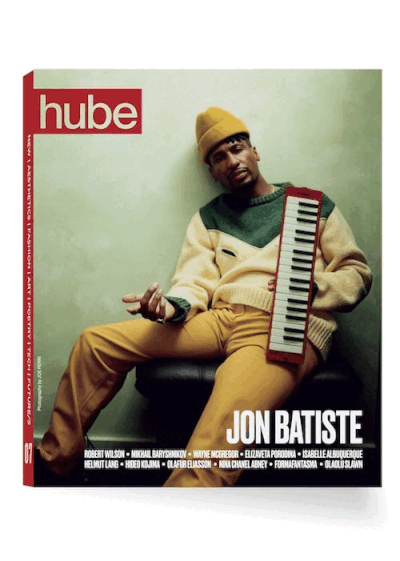
Iridescent carabiner, part of a capsule collection released in 2017.
Courtesy of RIZZOLI and FRAGMENT DESIGN

Mongram guitar case, part of a capsule collection released in 2017.
Courtesy of RIZZOLI and FRAGMENT DESIGN
Hiroshi Fujiwara is a cultural architect. Often referred to as the godfather of Ura-Harajuku, Tokyo’s iconic street fashion hub, his influence extends far beyond clothing. From his early days as a DJ to the founding of Fragment Design—an imprint for creative collaboration across design, consultancy, and culture—Fujiwara has been a pivotal figure in street culture, sound, and fashion since the 80s.
It was on moving to Tokyo at age 18 that his passion for music was born—an inclination that would define his creative journey. By 1985, his travels to London had immersed him in the electrifying punk scene, while his experience of New York’s hip-hop movement further fueled the evolution of his practice. This fusion of music, culture, and style has come to define his style—considered to be both singular and limitless.
Today, to collaborate with Fujiwara is to be celebrated as part of the cultural zeitgeist. With partners like Moncler, Nike, and Louis Vuitton, and projects that span clothing, collectibles, and luxury yachts, Fujiwara’s influence only continues to grow. His ability to merge diverse influences—from punk to hip-hop, luxury to everyday wear—has created an aesthetic that resonates with a generation craving authenticity and self-expression.
Explore Hiroshi Fujiwara’s thoughts on beauty, fashion as communication, and the enduring connection between music and culture in our interview.
hube: Humans find beauty in the unique and one-of-a-kind. How do you connect beauty with the everyday?
Hiroshi Fujiwara: The word beauty is often used to describe the nature, and sometimes the circumstances, of a person, place, feeling, or object. So I would say that beauty is connected to things that are natural, and also to things that happen naturally.
h: Clothing is a means of communication. Those who wear your clothes use your dictionary and your alphabet—what are your key words?
HF: I don’t think that way when I get dressed. For me, it’s more about the freedom of being able to wear the things you like, at the time you want to wear them. If there is communication in the clothing, perhaps it is in the styling rather than in the clothes.
h: Sight, hearing, taste, smell, touch. Which is most important to you?
HF: Sight? Because it is usually the first point of interaction.

